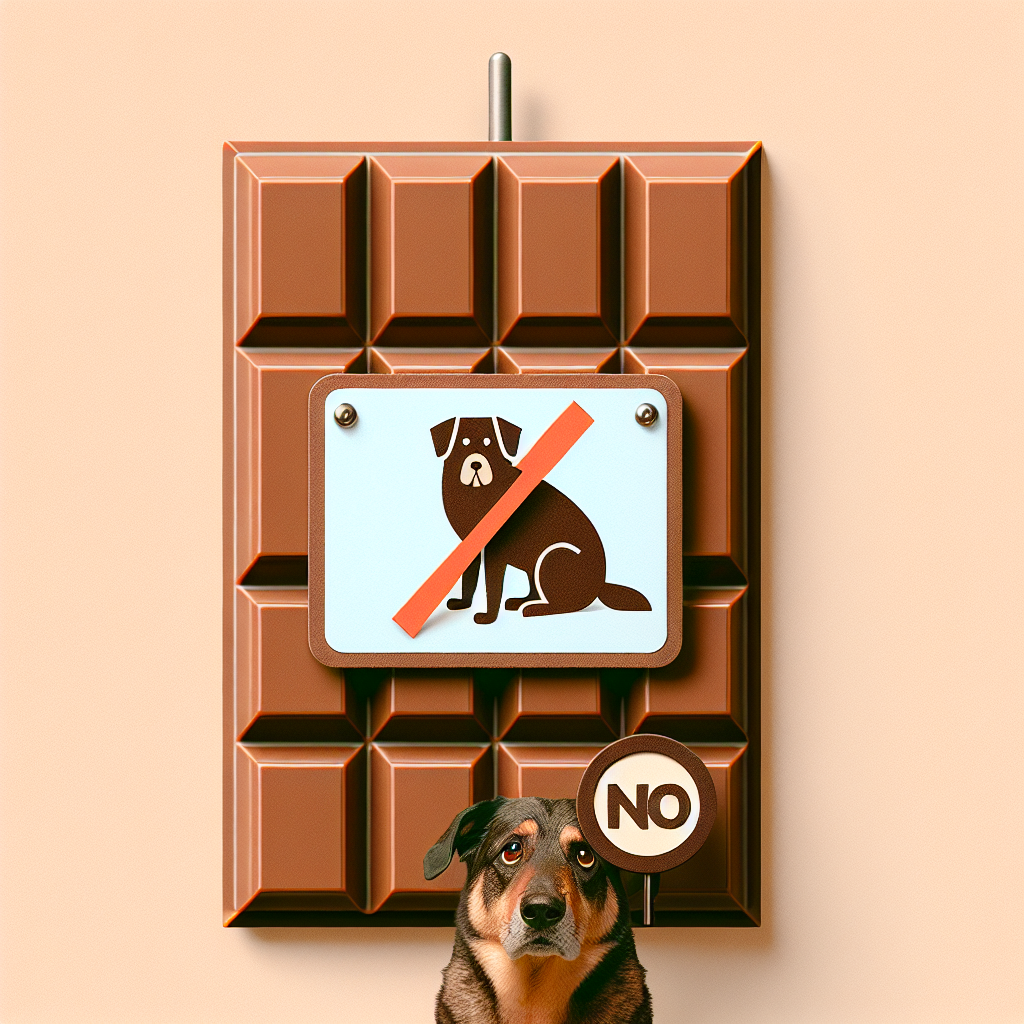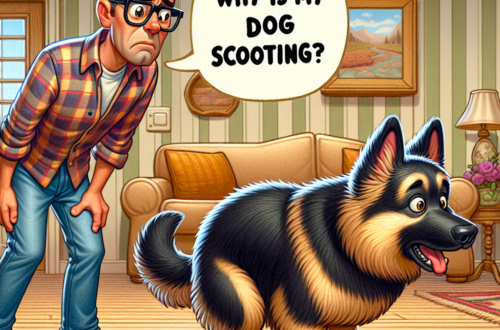Many of us love to indulge in chocolate as a tasty treat, but did you know that chocolate can be harmful to our furry friends? Dogs are known to have a sweet tooth and may be tempted to eat chocolate if given the chance. However, chocolate contains substances that are toxic to dogs and can cause serious health issues if ingested. In this article, we will explore why chocolate is not good for dogs and what steps you can take to keep your canine companion safe.
Why is Chocolate Toxic to Dogs?
Chocolate contains theobromine and caffeine, which are both stimulants that can be harmful to dogs. These substances can affect a dog’s central nervous system, cardiovascular system, and digestive system. Theobromine is more toxic to dogs than caffeine and can lead to symptoms such as hyperactivity, tremors, rapid heart rate, seizures, and in severe cases, death. The darker the chocolate, the higher the theobromine content, making dark and baking chocolate particularly dangerous for dogs.
Symptoms of Chocolate Toxicity in Dogs
It is important to be aware of the symptoms of chocolate toxicity in dogs so that you can seek veterinary care immediately if your dog ingests chocolate. Symptoms may include vomiting, diarrhea, restlessness, hyperactivity, increased thirst and urination, muscle tremors, seizures, and rapid breathing. In severe cases, chocolate toxicity can cause heart arrhythmias, respiratory failure, and even death. If you suspect that your dog has ingested chocolate, do not wait for symptoms to appear – contact your veterinarian right away.
What to Do if Your Dog Ingests Chocolate
If your dog has ingested chocolate, it is important to act quickly to minimize the risk of toxicity. The first step is to determine the amount and type of chocolate ingested, as this will help your veterinarian assess the potential danger. If your dog has only consumed a small amount of milk chocolate, they may be okay with at-home monitoring. However, if your dog has ingested dark or baking chocolate, or a large amount of any type of chocolate, it is best to seek immediate veterinary care.
When you contact your veterinarian, be prepared to provide information such as your dog’s weight, the type and amount of chocolate ingested, and any symptoms your dog may be experiencing. Your veterinarian may recommend inducing vomiting to remove the chocolate from your dog’s system, as well as providing supportive care such as fluids and medications to help counteract the effects of theobromine.
Preventing Chocolate Toxicity in Dogs
The best way to protect your dog from chocolate toxicity is to keep all chocolate products out of reach. This includes chocolate bars, chocolate chips, cocoa powder, hot chocolate mix, and baked goods containing chocolate. Make sure to store chocolate in a secure location and be mindful of where you leave items such as Easter eggs, Halloween candy, and Christmas treats. If you have young children in the house, educate them about the dangers of chocolate for dogs and encourage them to keep chocolate away from pets.
If you are hosting a gathering or holiday celebration, be sure to remind your guests not to feed chocolate to your dog. Some people may not be aware of the risks associated with chocolate consumption in dogs, so it is important to communicate this information to prevent accidental ingestion. Consider providing dog-safe treats for your furry friend to enjoy instead of chocolate.
Alternative Treats for Dogs
If you want to treat your dog to something special, there are plenty of dog-friendly options that are safe and delicious. Consider offering your dog treats such as carrots, apples, blueberries, peanut butter (in moderation), and commercial dog treats made with natural ingredients. You can also make homemade dog treats using recipes that are safe for dogs, such as peanut butter and oat cookies or pumpkin and banana muffins. Your dog will appreciate the gesture and you can feel good knowing that you are giving them a treat that won’t harm their health.
Conclusion
Chocolate is not good for dogs and can be toxic if ingested. The substances in chocolate, such as theobromine and caffeine, can lead to serious health issues in dogs and may even be fatal in severe cases. It is important to be mindful of where you store chocolate products and to educate your family and friends about the dangers of chocolate for dogs. If your dog ingests chocolate, seek veterinary care immediately to minimize the risk of toxicity. By being proactive and taking preventative measures, you can keep your furry friend safe and healthy.





